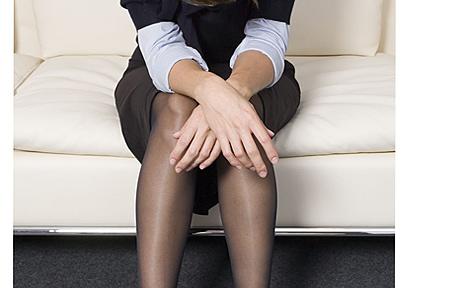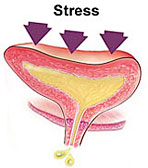Have you inadvertently urinated during a physical activity? Has that embarrassment happened to you more than once? Perhaps you have urinated while laughing, sneezing, or coughing? If you said yes to these questions, then you may have stress incontinence. This is a condition in which you urinate without meaning to particularly during physical activity.
Causes
How does a person like you lose urine without you knowing or controlling it? To better understand the cause of stress incontinence, here’s a quick explanation of how the body holds and controls urination. The lower urinary tract should be working in sync with the nervous system in order for a person to hold and control urine. There are two muscles that are critical to controlling urination—sphincter and detrusor.
 In individuals who have stress incontinence, the sphincter pelvic muscles are weakened. Thus, the said muscle is unable to prevent discharge of urine especially if there is pressure on the abdomen. So when you lift something heavy, or you laugh or cough, the sphincter fails to prevent the urine from flowing.
In individuals who have stress incontinence, the sphincter pelvic muscles are weakened. Thus, the said muscle is unable to prevent discharge of urine especially if there is pressure on the abdomen. So when you lift something heavy, or you laugh or cough, the sphincter fails to prevent the urine from flowing.
The weakening of the sphincter pelvic muscles may have been due to childbirth, or an injury to the urethra. Certain medications can also damage this part of the body. If you have had surgery in the pelvic or prostate area, you are also at risk of weakened sphincter muscles and consequently, stress incontinence. Females are more likely to get afflicted with this condition. Other risk factors of this disorder are obesity, smoking, and advancing age.
Diagnosis
To determine whether you have stress incontinence or not, your doctor will conduct rectal and genital exam (if you are a man) and pelvic exam (if you’re a woman). Other tests that you may be asked to undergo include electromyogram to detect whether there is a weakening of the muscle activity in the urethra, abdominal ultrasound and post-void residual exam to determine the amount of urine retained after urination. You may also be asked to go through X-rays to check on the conditions of the kidneys and bladder, and urinary stress test.
Treatment
 The treatment of stress incontinence may depend on the severity of the symptoms and how these affect your daily activities. Change in lifestyle is a good first step towards treating the disorder. Quitting smoking and avoidance of caffeinated drinks like coffee and soft drinks may go a long way towards combating this disorder. Behavior changes may also be prescribed so that you will avoid urinating uncontrollably. Avoiding physical activities like running or jumping can be a good preventive measure.
The treatment of stress incontinence may depend on the severity of the symptoms and how these affect your daily activities. Change in lifestyle is a good first step towards treating the disorder. Quitting smoking and avoidance of caffeinated drinks like coffee and soft drinks may go a long way towards combating this disorder. Behavior changes may also be prescribed so that you will avoid urinating uncontrollably. Avoiding physical activities like running or jumping can be a good preventive measure.
Medications like Cymbalta may also be given in lieu of surgery. While Cymbalta is most commonly used for treatment of major depressive disorder, it is also prescribed for treatment of osteoarthritic pain and lower backaches. In Europe, the drug is given as an alternative to stress incontinence surgery. However, it can also relieve pain of mild to moderate cases of stress incontinence. Surgery, meanwhile, is only considered once the exact cause of stress incontinence has been identified.
Share This